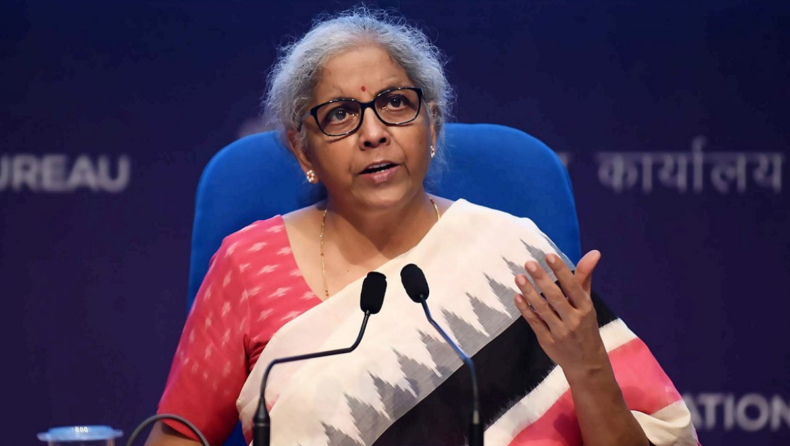On July 19, the Union Finance Minister Nirmala Sitharaman noted that states used to levy sales tax or VAT on food grains in the pre-GST regime. Similarly, she stated, the current levy on cereals, pulses, flour, curd, and lassi is an exercise to curb revenue leakage.
On July 19, Union Finance Minister Nirmala Sitharaman stated that states imposed sales tax or value-added tax on food grains prior to the implementation of the GST. She claimed that the present tax on grains, pulses, flour, curd, and lassi is an effort to prevent income loss. Finance Minister Nirmala Sitharaman stated that states had been levying VAT on food grains since before this decision was implemented. She added that the current levy on the aforementioned items is an exercise to reduce revenue leakage.
According to a top government official, the decision to levy GST on pre-packaged foods and food packets was made after several states provided feedback on revenues. They claimed that they were losing revenues that had been previously gained from the levy of VAT on food items.
The Union Government did not make the decision to begin collecting the tax on July 18; rather, the GST Council did so on their own initiative. The Fitment Committee, which is comprised of officers from a few states as well as the Centre, took into consideration this matter.
Revenue Secretary Tarun Bajaj’s explanation on the levy
According to Revenue Secretary Tarun Bajaj, who spoke with PTI about the matter, this proposal was made by a group of ministers (GOM). The GOM comprised of minister representatives of several states. Finally, the matter was brought up by the GST council. He stated that the GST Council, came to a unanimous consensus regarding the imposition of the tax. Mr. Bajaj added that the GST Council has been working with a comprehensive understanding of the issues. The council has been making judgments that address the concerns of every single dissident State.
What is the GST council?
The new constitutional decision-making body in the country for the Goods and Services Tax is called the GST Council. The Union Finance Minister serves as the chairperson of the panel, which consists of 33 members. The body is composed of representatives of all of the states and union territories. Its decisions are made only when everyone is in agreement with them.
Why was the goods and services tax levied on pre- packaged food and food packets?
The decision to impose the Goods and Services Tax on pre-packaged goods and food packets was taken after a number of states submitted feedback on revenues. The states were losing revenue that they had previously earned from the imposition of VAT on food products.
Therefore, in an attempt to help states prevent their loss of income, the finance minister imposed a levy on grains, pulses, flour, curd, and lassi. However, the Goods and Services Tax (GST) will not apply to the sale of loose items that have not been pre-packaged or pre-labelled.

This elimination of the distinction between branded and unbranded products was an effort to streamline the tax system. It also aimed at providing a fair playing field with a low likelihood of legal challenges. It equalizes all brands and businesses by eliminating disparities, explained the revenue secretary.
How are certain companies escaping the 5% GST tax through the loopholes?
The guidelines said that the GST would not be imposed on pre-packaged goods if the brands gave up their actionable claims. This resulted in a number of well-known firms beginning to offer these things in packaging that bore their logo but contained no actionable claim. These were the companies’ attempt to avoiding the 5% GST.
The opposition and public’s view regarding this decision
Several states governed by parties other than the BJP were participating in the decision to levy the tax during the Council’s meeting in Chandigarh at the end of last month. But vociferous protests against the levy emerged right around the time that the Monsoon Session of Parliament was scheduled to begin.
Read more: GST Compensation states dues now amount to Rs. 35,266 crores













